
We kindly inform you that, as long as the subject affiliation of our 300.000+ articles is in progress, you might get unsufficient or no results on your third level or second level search. In this case, please broaden your search criteria.

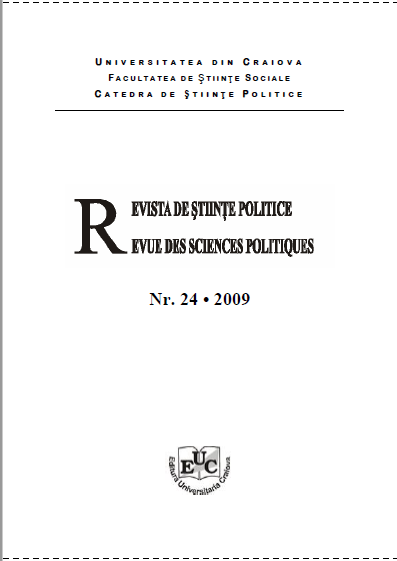
This article explores recent debates about citizenship, social security rights and social provisions in Romania. It also discusses the concept of social exclusion which is used to determine the condition of those who have fallen outside the social insurance system. Romanian social security system is founded on the principle of solidarity which holds that all citizens face a series of social risks (unemployment, illness, ageing, death), that make them dependent on one another. The emergence of these social ills and the socio-economic conditions led to a major crisis of social security and citizenship in Romania: a crisis of coverage, of legitimacy and of participation. Recent policy debates suggest that the difficulties faced by the Romanian welfare state are encouraging moves towards the British model of tax-based (rather than insurance-based) financing of social provisions. Discussing this issue with economists and politicians, new reform measures had in view by the legislator are evidently regarded as equivalent to Hans Christian Andersen’s “Emperor’s new clothes”.
More...
Due to the large scale of poverty, a very important element of public policy at all levels (international, national and regional) is to undertake activities aimed at limiting this problem. These activities should ultimately lead to a positive structural change. However, it does not always happen – so before the realization of a particular public intervention, it is advisable to make a thorough analysis of the effects of its implementation – both short and long term. In practice, the results of public intervention are mostly evaluated ex-post with the use of different methods. However, the essence of the evaluation process should not only be observation of past events, but also an acquaintance with the effects of planned activities. Hence, this article focuses mainly on ex-ante analyses of the impact of public intervention on levels of poverty, and its purpose is to review the methods that can be used in such analyses, with particular emphasis on various types of models.
More...
Due to the ongoing demographic changes towards aging populations, the situation of the elderly gains particular significance. The economic and social consequences of the projected transformations force the reflection on the economic rationale of life of these people. It can be assumed that increased life satisfaction translates into increased economic activity of this group. This, in turn, is of great importance from the standpoint of the economy. In this article, life satisfaction will be analyzed in relation to financial aspects affecting the well-being of people aged 60+. The analysis will focus on the aspect concerning the situation of people aged 60+ in Poland and will be based on Diagnoza Społeczna, GUS and ZUS data.
More...
The objective of the article is to present the way of functioning of the system of social assistance in Poland. The work consists of two basic parts: theoretical part which presents the system of social assistance in Poland outlined on the basis of subject literature and empirical part, presenting the functioning of local system of social assistance within the Obryte commune. Within the empirical part an assessment of the system has been included which has been conducted basing on the research survey of a group of applicants for the assistance at Communal Centre of Social Assistance. The model of social assistance has been presented within the work as an element of the system of social policy in Poland, its functioning within the local system as well as some key changes taking place both in terms of needs, method of support, level and structure of financing. Certain decrease in the needs related to the fall in number of births has been noted as well as an increase in needs related to the functioning on labour market and the ageing of the society.
More...
Until recently the “shock therapy,” i.e. radical reforms, have been celebrated as the way to later economic growth and prosperity in post-communist countries. The article argues that not only Poland, but also East Germany underwent a shock therapy that was particularly radical in liberalization and privatization. Combined with the currency union and rapid accession to the European Community, the patient hardly survived the therapy. As a result, all of Germany, including the former West, slumped into a protracted post-unification crisis, which then lead to a second round of neoliberal reforms after the turn of the millennium. The article then discusses the economic, societal and political impact of the pension, social security and labor market reforms (the Hartz reforms) that were enacted under the Social Democratic and Green coalition. The final conclusion is that instead of the quick westernization of the GDR, all of Germany was co-transformed and shares commonalities with other post-communist countries.
More...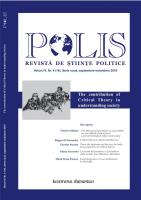
The article is part of an approach to the development of labor legislation and social policies in pre-communist Romania, focused on their connection with the evolution of professional representation. Looking at the period of the early XXth century with the hindsight of previous inquiries into the issue of the origins of the corporatist vision of professional representation from within the movement of professional associations itself—before the adoption of the corporatist project by Mihail Manoilescu and other theorits of the Right—, it discovers an episode hitherto understood as pertaining to the (slightly adjusted) survival of the pre-modern type of guild organization to have acted, in fact, as an integral part of the modern confrontation between the syndicalist and the corporatist designs for the representation of professional interests.
More...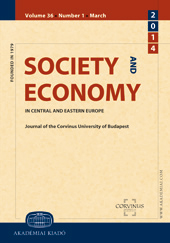
In the past few years in many countries people have experienced the erosion of trust in the main pillars of democracy, the voting and election systems. Many authors envisage the blockchain technology as a tool for restoration of trust (Tapscott 2016; Swislow 2016; Shin 2016). Our research is aimed at the potential use of blockchain technology in social systems for enhancing trust and increasing participation. We aim to explore whether the blockchain technology is suitable for voting or elections in large communities and the issues to be addressed for real world applications to leverage democratic rights. Our final conclusion is that there are both theoretical and practical obstacles in the way of such direct applications.
More...
Subjective measurement is another important aspect of poverty and well being measurement method. The estimation through self assessment is another non monetary poverty that takes into consideration the monetary and non monetary aspects. The self assessment is estimated taking into consideration qualitative and quantitative measure. In this paper there are estimated three dimensions of subjective poverty, qualitative one, estimated with minimum income needed and two others expressed with categories, happiness and assessment in scale. The research aim to study and to find the best methods of the subjective measurement, as an important dimension of non monetary poverty is to analyze trend and correlation with objective poverty and to define factors that influence in the probability of feeling poor. It is supposed that this assessment is influenced by different socio-economic indicators like household characteristics, income declared, education, employment, etc. The analyses is based on data from the Living standard Measurement Survey and there are presented methods how to calculate different dimensions of subjective assessment in order to update further on with other sources.
More...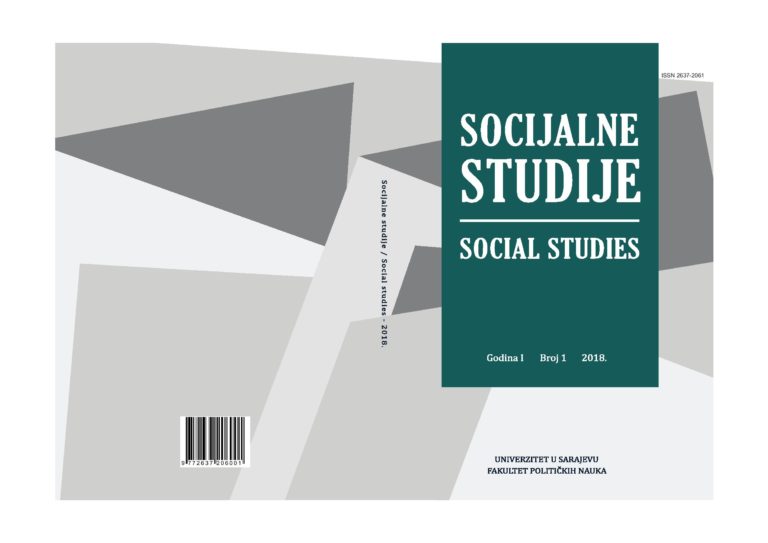
Social work in Bosnia and Herzegovina appeared as a response to a social crisis and accumulated social problems. Industrialisation, urbanisation and migration required professional intervention, and war is also the main reason for introducing social work as a professional activity. Although it has been 60 years since social work became a profession in Bosnia and Herzegovina and its application began in practice, there are still many limiting factors that negatively affect the social status and status of the profession of social work. Considering the above, it was important to examine the attitudes of social workers and students about social work, about the factors affecting the social position, but also the crisis that necessarily determines the future of social work. The study included 270 participants. Questionnaires were used to survey 115 social workers and 155 students of the first and second program cycle at the Department of Social Work of the Faculty of Political Science, University of Sarajevo. A semi-structured interview was conducted with social workers (N=6). By the means of interviews, we wanted to get a wider insight into the attitudes of experts- social workers about the issues in social work in Bosnia and Herzegovina. The results of the research show that the social work in our society has not yet received the place it deserves. The position of the social work is dissatisfying; it is perceived on the margins of the scientific-professional discourse, a multiannual crossroad and mostly “anchored in social protection”. Direct and indirect factors affecting the perception of the social work were identified, and it was pointed to the need for systematic work on removing the factors of degradation. It was noted that limited opportunities for action make it difficult for social workers to be genuine social workers in practice, loyal to their professional identity and the ethics of social work. An important result of the research suggests, regarding valuation, respect and appreciation for the social work, social workers should be recognised in public, through their personal commitment and the use of the media to inform the public about their work.
More...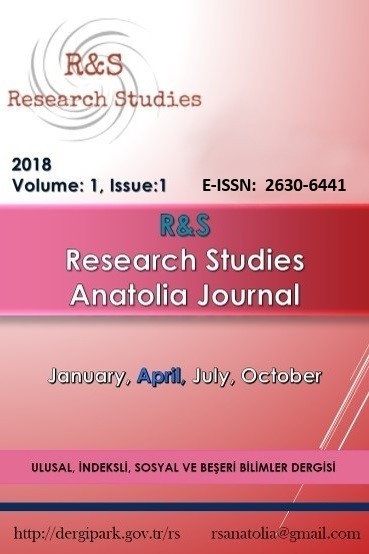
This paper examines the legal structure of poverty alleviation policies in Turkey. Legal regulation of social policy adopted in Turkey for the fight against poverty and legal regulations on direct social assistance have been included. In this article, the Laws that constitute the basis of the policies within the scope of the fight against poverty are examined. In this context, the importance of the Law No. 2022 about granting salary for people of 65-Year-Old, Poor, Needy and Orphaned Turkish Citizens and the Law No.3294 of Encouraging Social Assistance and Solidarity on social policies aimed at combating poverty were discussed. The main material of the article consists of the legislation, direct and indirect regulations regulating policies to combat poverty, the reports of the Ministry of Family, Labor and Social Services, the Constitution and articles and reports written in this field.
More...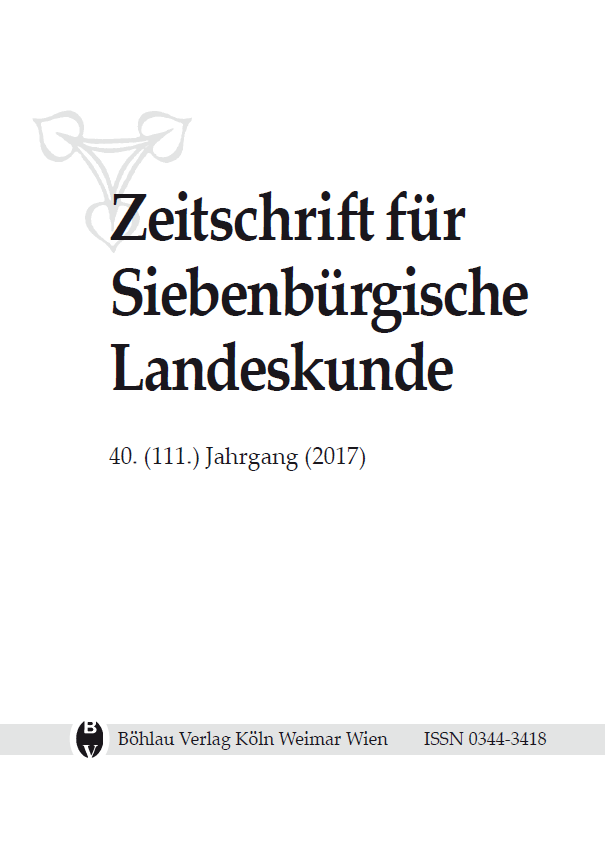
In der 1798 vorgelegten zweiten Auflage seiner „Metaphysik der Sitten“ hat Immanuel Kant – wohl auf Grund einer Rezension ausführlicher als in der ein Jahr zuvor erschienenen Erstauflage – kritisch zum Thema Stiftungen Stellung genommen: „Stiftungen, sobald sie einen gewissen, von dem Stifter nach seiner Idee bestimmten entworfenen Zuschnitt haben, können nicht auf ewige Zeiten fundiert und der Boden damit belästigt werden; sodann der Staat muß die Freiheit haben, sie nach dem Bedürfnisse der Zeit einzurichten.“
More...
In this paper we are going to represent a plan and process of transformation and deinstitutionalization of facilities for children without (adequate) parental care in HNK. Both of these processes, deinstitutionalization and transformation are focused on changes that have a goal to empower children without (adequate) parental care, families with children that are in risk of separation, to provide support to biological parents in development of parental skills, and to insure a better life conditions for a child in family environment in which social, educational and child care conditions are created. In social care system in Herzegovina-neretva canton “Transformation Plan” covers preparation and making of a prescriptions for changements and amendments of social care law with a goal for establishment of services that are not included into current legislations. Process of deinstitutionalization and transformation in planned framework is already directed towards assessment of needs, resources and existing social services in current social care system. And after that it is going to be directed onto development of new social services in local community, primarily onto establishment of daily and semi daily foster care centers for children with disabilities and children with a risk of separation from family. On cantonal level establishment of services for prevention is also planned, and these are going to include underage pregnant women, mothers with children up to six age, children that are caught strolling and in beggary, children that have imposed educational recommendations and children with difficulties in behavior for protection. With insurance of listed social services, current social care system is going to go through transformation progressively and in accordance with EU standards and the best interest of the child.
More...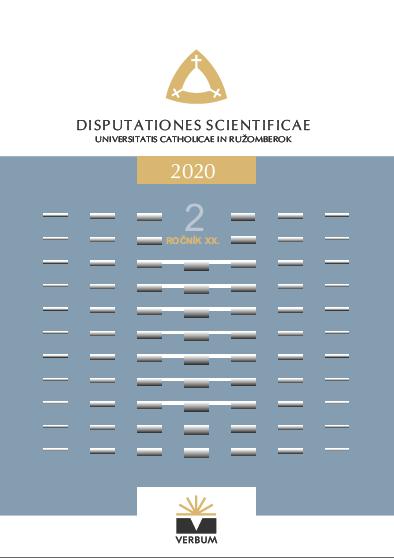
The paper points to one of the scientific areas of medicine, psychiatry. The number of people with mental illnesses and disorders in the modernized, modernized, power and money chasing world is constantly increasing. However, it is similar in third world countries, where states are not able to provide only primary medical and nursing care. The aim of the article is to present the position of psychiatry in the past to the present. Furthermore, the multi-temporal collaboration of all professionals involved in the treatment process is important for the successful treatment of psychiatric patients. There is also a relatively wide space for a social worker, who is a certain aid distributor, working closely with the medical team as well as other health care professionals (nurse, psychologist, physiotherapist), family members, social workers, courts, social curators, the CPSR. It applies methods, forms and techniques of work with clients. Such a social worker must be fully funded, besides education he also needs to have personal qualifications, be fully knowledgeable, trained, proficient. It can also work within non-govern-mental organizations dedicated to prevention, forms of assistance in the treatment or dissemination of enlightenment. These particular aspects have been given due consideration.
More...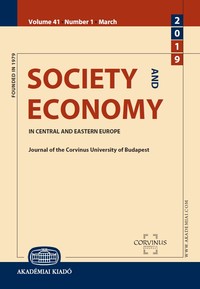
In 2017, Korea became an ‘aged society,’ with the proportion of people aged 65 or older exceeding 14%, while the ratio of the working-age population declined for the first time. This study uses data from the Korean Longitudinal Study of Ageing (KLOSA) to examine the effects of public pension on the labour supply of older people and discusses ways of preparing for this ageing problem. The study uses the Heckman sample selection model for analysing both the extensive and intensive margins of older people's labour supply. Our results show that the effects of public pensions in Korea are very different from that in other countries. It can be inferred that these differences are a consequence of the less developed social security system and limited experience from its short period of implementation. Hence, encouraging older people to work could be a way of solving the problem of relatively high poverty among the older population in a society that is likely to age even more. This is considered an optimal solution in light of increasing life expectancy, a poor social security system, and a decrease in private income transfers from children to their ageing parents.
More...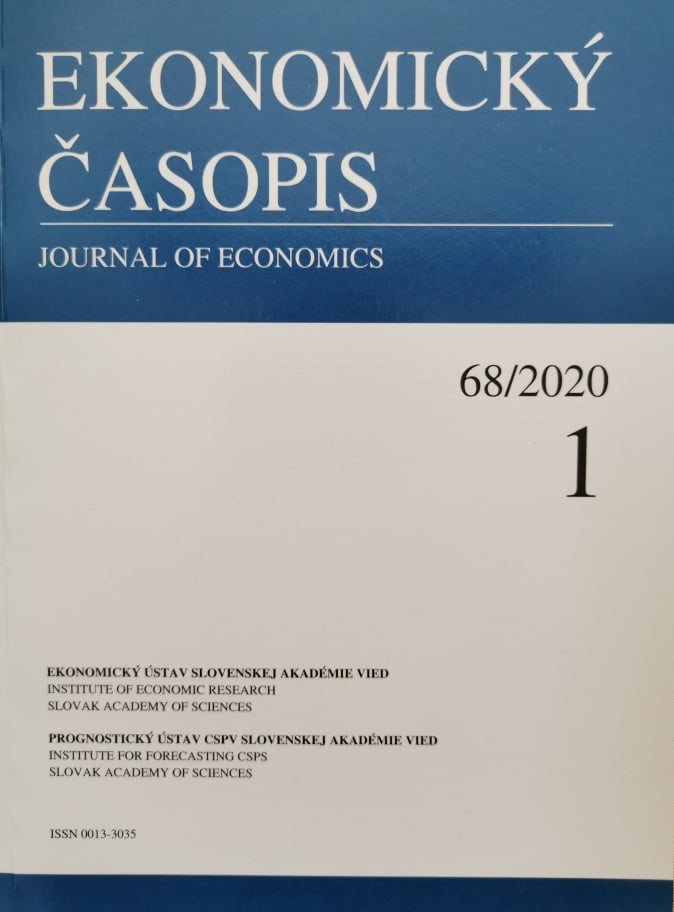
The paper relies on the newest set of quality of life dimensions defined by the European Commission, in order to achieve a two-fold purpose: to obtain a detailed image of European Union countries’ synchronization in terms of each quality of life dimension and to create a new, comprehensive metric of a country’s overall quality of life by aggregating the information provided by each specific dimension. Thus, our complementary research approach relies on: i) an in-depth exploratory analysis to assess European Union countries’ resemblance in terms of quality of life dimensions; ii) the development of a novel rating system, which serves as a barometer for the quality of life status and allows countries’ ranking. The findings revealed that increased resemblance between countries appeared for governance and basic rights indicators, productive activity and education indicators, while the highest dissimilarity was present for the living environment indicators and material living conditions indicators.
More...
This article examines the effects of macro-level processes – economic recession, growth of the service economy, and deindustrialisation – on the social support networks of residents of Slovenia in the period between 1987 and 2018. Before the transition, Slovenia enjoyed highly functional social support networks. The economic downturns of the early 1990s and late 2000s increased the probability of insufficient social support. The growth of the service economy saw the importance grow of formal sources of support. Socio-demographic changes captured by the notion of the post-industrialisation of society brought various effects: the increased educational level and diminished size of households impacted the growing presence of formal sources and mixed social ties in support networks, while the ageing population contributed to the increased presence of networks with insufficient social support. We conclude that Slovenian social support networks have experienced a distinct transformation over the last three decades.
More...
A health system can be viewed as a set of markets, interacting and interdependent while the institutionalized market of medical services is one of the links in this ensemble, being among the institutions that make up this market: hospitals, sanitariums, Balneoclimateric treatment facilities, specialized tertiary care centers etc. Public discourse focuses on hospitals for reasons both considering the significant volume of financial and human capital that is associated with them, as well as the increased flow of patients they support. The clinical context where patients have immediate access to hospital services is one of the reasons that public perception is often resistant to adopting market conditions in this sector. Financing the health sector is an essential factor for the organization and functioning of any health care system. Health care policy is closely tied to the financing sources of health services.
More...

While referring to the fundamental social rights, the author points out several topical issues. The most important one in his opinion is that the protection of these rights is still insufficient, first of all in comparison to the expectations of their holders, while it is tributary to an obsolete historical context, according to which the world was divided into antagonist political-military blocks. Another problem comes from the differences in terminology and concepts when approaching the social exclusion phenomenon as well as the configuration of the fundamental right to minimal living conditions. Unification of the regulation and protection of the two categories of rights – civil and political and economic, social and cultural – is more topical than ever, but it depends on the political will of States.
More...